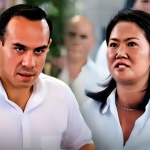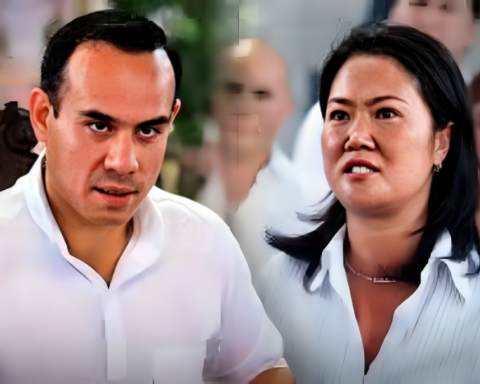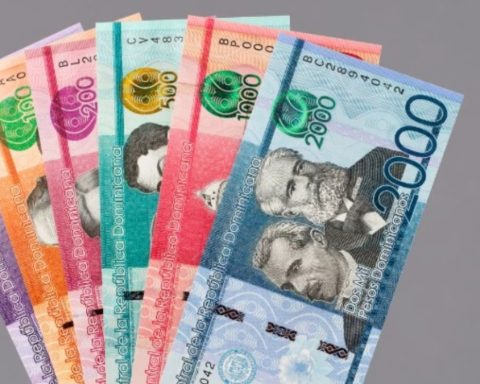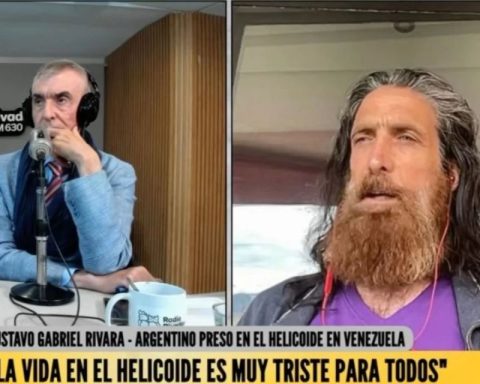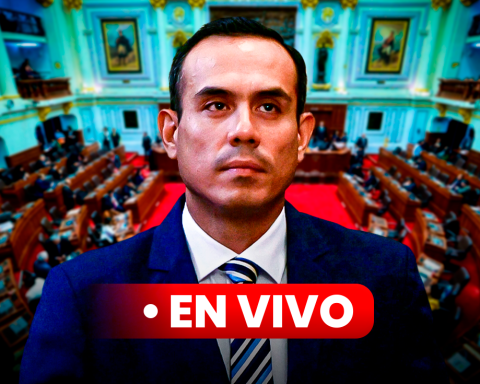The president of the Republic Luis Lacalle Poutogether with the authorities of the Ministry of Education (MEC) and the National Administration of Public Education (ANEP), resolved stop the implementation of the protocols announced this Wednesday by the Ministry of Public Health (MSP) regarding quarantine times in case of outbreaks in educational centers, and that deepened the distinction between vaccinated and unvaccinated minors against covid-19.
Throughout the day on Thursday, Lacalle Pou held talks with the Minister of Education, Pablo Da Silveira, the president of ANEP, Robert Silva, and the Minister of Public Health, Daniel Salinas, who raised questions about “discrimination.”
According to the guidelines presented, those under 18 years of age with two or three doses of the vaccine – or who have had the infection in the last 60 days – would not have to isolate themselves in the event of an outbreak in their class. On the other hand, minors with a single dose or not vaccinated would have to isolate themselves for eight days, being able to reintegrate earlier only if they present a negative rapid test. In this way, for example, an asymptomatic unvaccinated child should be quarantined for more than a week, while a vaccinated one could attend classes.
At the exit of the Durazno Expo, the president said that the government “does not want to have policies that can discriminate in any way” and that’s why “will not apply”. In addition, he mentioned as inconvenient to “change everything planned” “a few days” before starting classes.
“I want to be very clear on this, as has happened throughout the pandemic. Public Health recommended some actions, and then the corresponding area, in this case respecting the autonomy of education, makes a decision, which in this case will be significantly different from the recommendation of the Ministry of Public Health,” said Lacalle, who insisted in that the MSP “did not make a protocol”, but rather “made a recommendation”. “The protocols have to be accepted by the Executive Power”, he affirmed.
When presenting the guidelines a day before, the Public Health authorities had indicated that the new requirements would be included in an ordinance that would be announced in the following hours, and that it would be sent to the Codicen authorities “for the purposes that they consider them their technicians.
In any case, both the page of the MSP and that of the Presidency of the Republic itself collected Salinas’s statements as the announcement of new “protocols”. On the Presidency page it was reported that “the MSP presented the update of the testing and isolation protocols” and that Salinas “detailed the changes in the protocols for contacts, teachers or students.”
At Wednesday’s conference, Salinas stated: “In school and high school, children and adolescents who suffered from covid-19 in the last 60 days will not be quarantined, nor will they be quarantined if they have two or three vaccines according to the schedule for their age or comorbidity status. I reiterate, isolation will not be requested if they are fully vaccinated. For those, on the contrary, who have a dose or are not vaccinated or have spent more than 60 days, they may be reinstated on the eighth day of the last exhibition. At the tertiary level, quarantine is not going to be requested in any case, only self-monitoring of symptoms, “he added.
the questions
The Codicen technical teams received the documents from the MSP on Wednesday and began an analysis that, according to agency sources, will continue in the coming days. For their part, the Codicen councilors began to discuss its possible implementation and warned that, in addition to the questioning of discrimination against unvaccinated children, the Public Health guidelines posed “difficulties from a practical point of view”, that is, of its implementation.
The Minister of Education and Culture, Paul Da Silveirasaid that his portfolio was “conversing in these hours” with the MSP to avoid applying the protocols.
“To me personally it is a decision that I would not like to make. We are talking in these hours to find paths so you don’t have to”, said Da Silveira, asked about the new requirements that had previously been criticized by pediatricians and education workers.
“We are talking at this time about this issue. The reality is very dynamic. We hope that by the day classes start we can have relaxed some limits in favor of the proper functioning of educational communities,” added Da Silveira this Thursday.
Salinas, for his part, said Thursday that the ministry’s guidelines are “very far” from constituting “discrimination.” “On the contrary, you notice that until last year, for one case in a class, all children were quarantined for 14 days. And now at the level of 5 years and older we move to a non-quarantine regimen for one case, only by two or three, inclusive. It may be that there are two or three cases and that they do not constitute an outbreak, “he said. “There (is) no type of discrimination. So much so, that an unvaccinated child, if he suffered from the disease, can attend class. That is the demonstration that there is no difference between vaccinated and unvaccinated“, he added.
The minister also said that the “recommendations” were made “by experts of high dedication and prestige, under a risk assessment criterion,” and said that in the next few hours they will come out to “explain” the fundamentals.
Pediatrician Álvaro Galiana, one of those who worked on the drafting of the guidelines, told Informativo Sarandí that in his opinion there was a “differentiation” but “not discrimination.”
“There is a biological difference between the vaccinated and unvaccinated individual. It is a differentiation and not a discrimination. You have to think about the individual aspects and the general aspects of the educational center. Nobody wants it to be a place where children can get infected. It is a medical issue that must be taken into account. It is intended that the difference between the vaccinated and unvaccinated child be minimal, but it is true that the unvaccinated child could infect more days than the vaccinated child. The educational center has to be a safe place,” she argued.
The pediatrician Sebastián González Dambrauskas, on the other hand, thought that the differentiation “is terrible news”, contrary to what had been expressed in November. “It is not understood why in the face of a mild illness, where vaccination is known not to prevent infection, we are treating them in a way based on whether they are vaccinated or not,” he argued.
Gustavo Giachetoalso a pediatrician and member of the National Vaccination Advisory Commission, said for his part that “the new action protocol in schools is very complex to justify, understand and apply“.
The MSP’s decision went in a direction contrary to the initial recommendation issued by the Vaccine Advisory Commission in November, when it approved vaccination against the coronavirus in children between 5 and 11 years of age. The agency emphasized on that date that the vaccination status “should not be a limitation in this age group for their access to any activity.”






